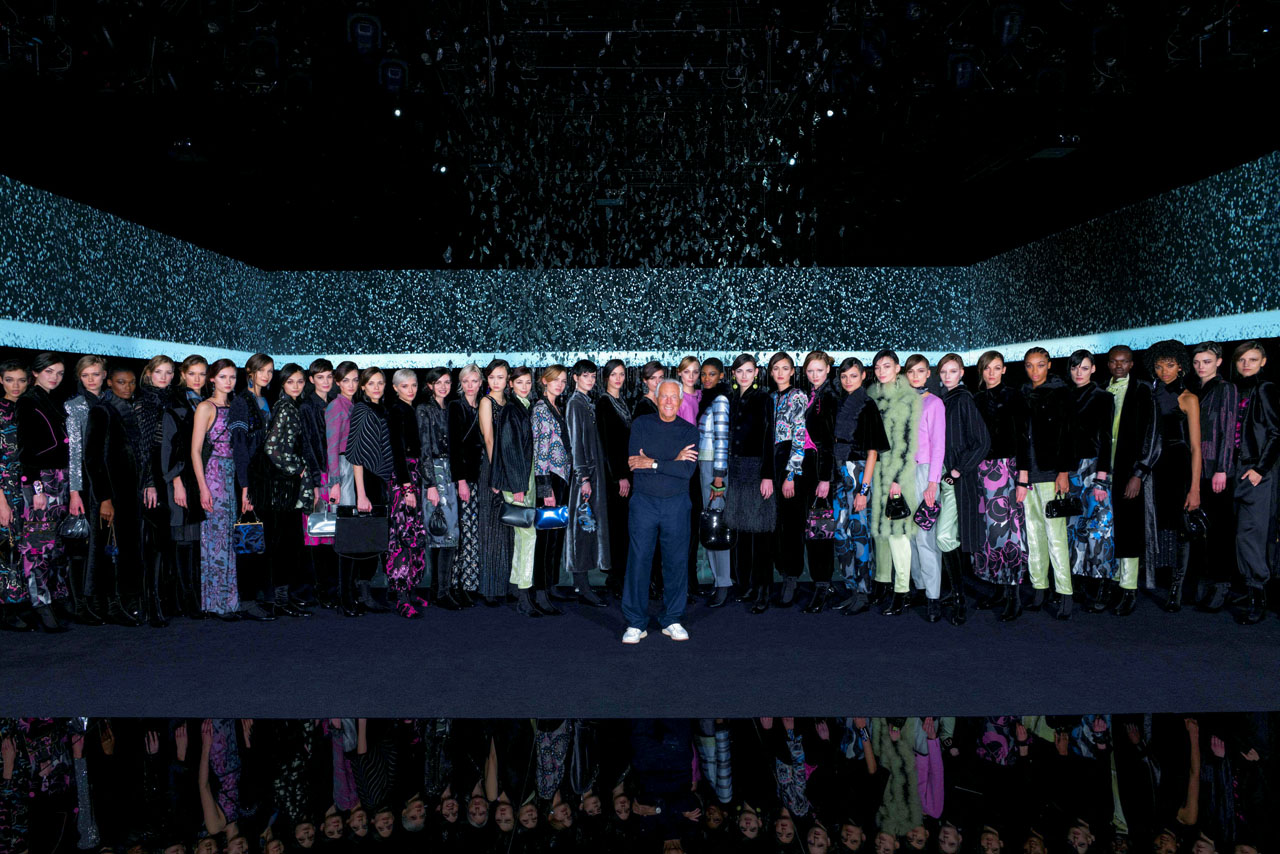
Giorgio Armani. A man who needs no introduction. A man who not only pioneered Italian luxury fashion more than 40 years ago but continues to steer it today. A man whose oeuvre is so vast, so rich, so culturally dense he stands as a kind of modern Renaissance man. Italy’s Renaissance man.
From building huts on the banks of the River Trebbia to helming the Armani empire today, we chat exclusively to Mr. Armani about his history, how he’s personally surviving quarantine (including his love of biographic film), navigating the current “war economy” of fashion and the moment he decided to stage his show behind closed doors.
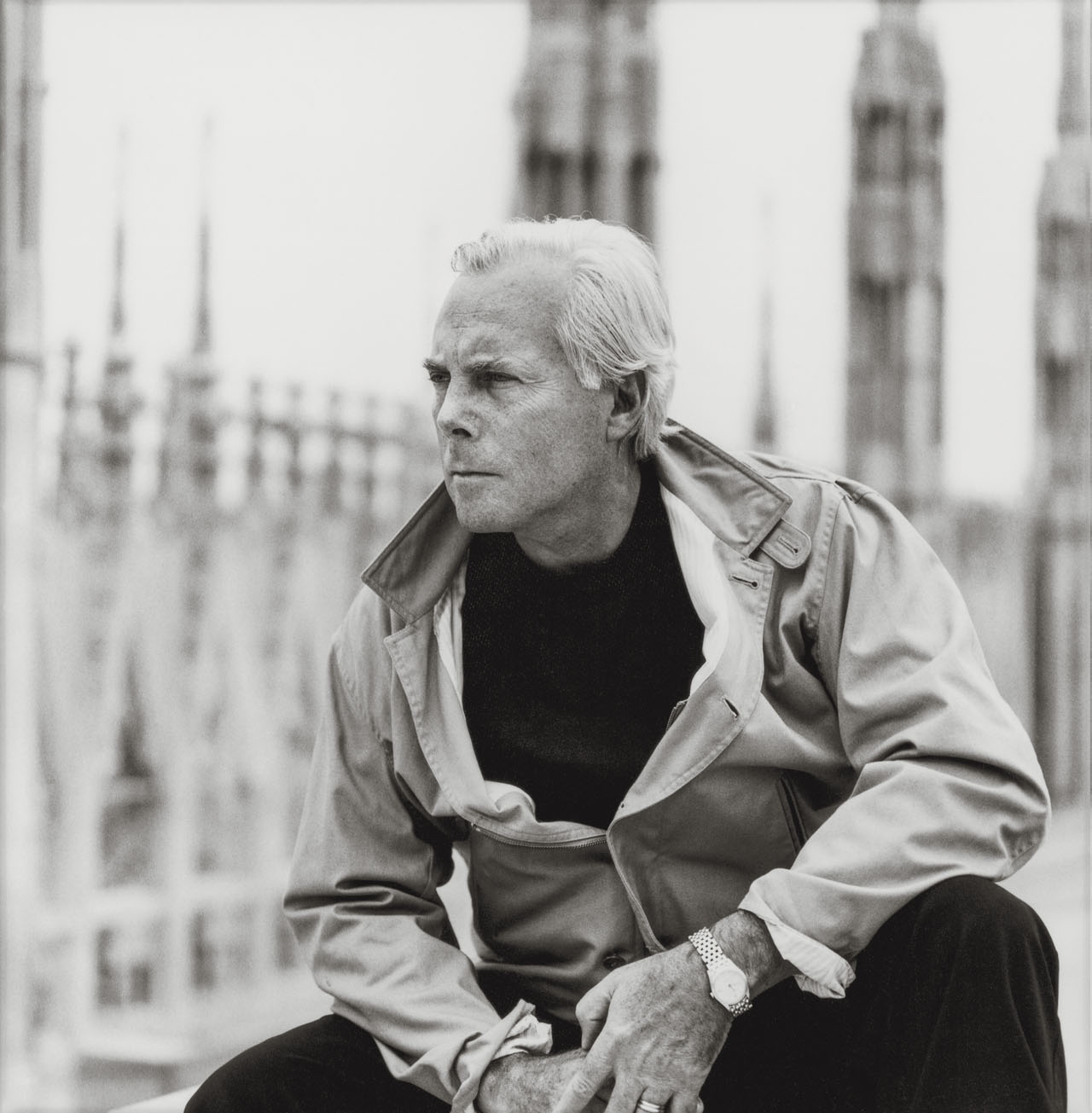
Your decision to hold the fashion show behind closed doors was the first sign of this difficult time. Can you tell me how that decision was made?
I’ve always followed the situation with particular interest, staying as informed as possible. When I perceived the gravity of the situation, I did not feel like exposing the many people who are involved in fashion shows, i.e. my employees, reporters and buyers, to a health risk. I looked for an alternative that would not halt the system and yet protect everyone involved. I think I made a wise decision, one I would repeat in the future. And I was very pleased to see the public’s appreciation. They showed their trust in me, and I thank them for this.
How had your week been up to that moment?
It had been a week of intense work, as all the weeks prior to a fashion show are, though inevitably affected by the news that continued to pour in. I remember thinking that what was happening in China was no longer so distant.
What was the emotional cost of choosing, for the first time in your history, to show your creations without an audience?
It was not the first time. It had already happened in Paris, years ago, when I had a fashion show behind closed doors, although at the time the audience consisted of my employees. Here instead the audience was empty and there were only the few working crew.
What was your impression of the empty audience?
It was a strange feeling, somewhat surreal, but I was sure I had made the right choice and I felt at ease.
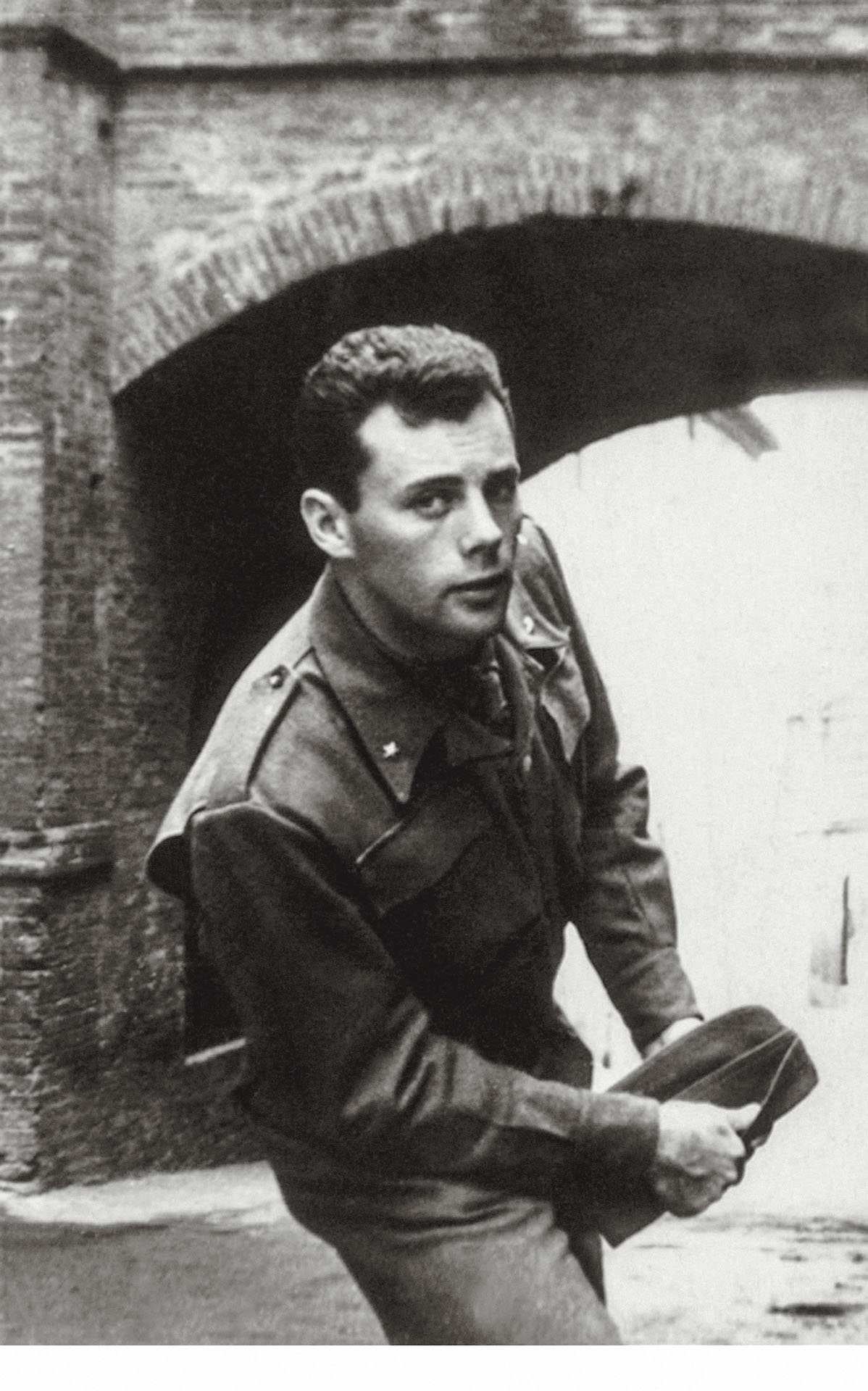
These days, we frequently hear that we are going through a war, with a plethora of military metaphors being used in discourse, e.g. fighting a virus, being entrenched at home, queuing to buy bread, the potential rationing of certain products. As your generation truly experienced real war, what similarities and differences do you see?
We are indeed at war, but against an enemy that is invisible and global. The fear, though, for myself and my loved ones, is the same. As is the great desire to start over, but at a different pace, learning from this experience.
What do you remember in particular of the war years?
Its harshness, but also the way my mother was able to make the most difficult times less painful for us children. Then I remember the time we spent in San Nicolò, a small town about 30 km from Piacenza, where we had moved to. As much as we could, we tried to live a normal life next to our neighbors. Over time, I realized the value of that form of solidarity, of mutual support.
What were the saddest days of that time?
When you would suddenly hear the air raid sirens followed by bombing. And the days when I saw the look of deep concern on my parent’s face.
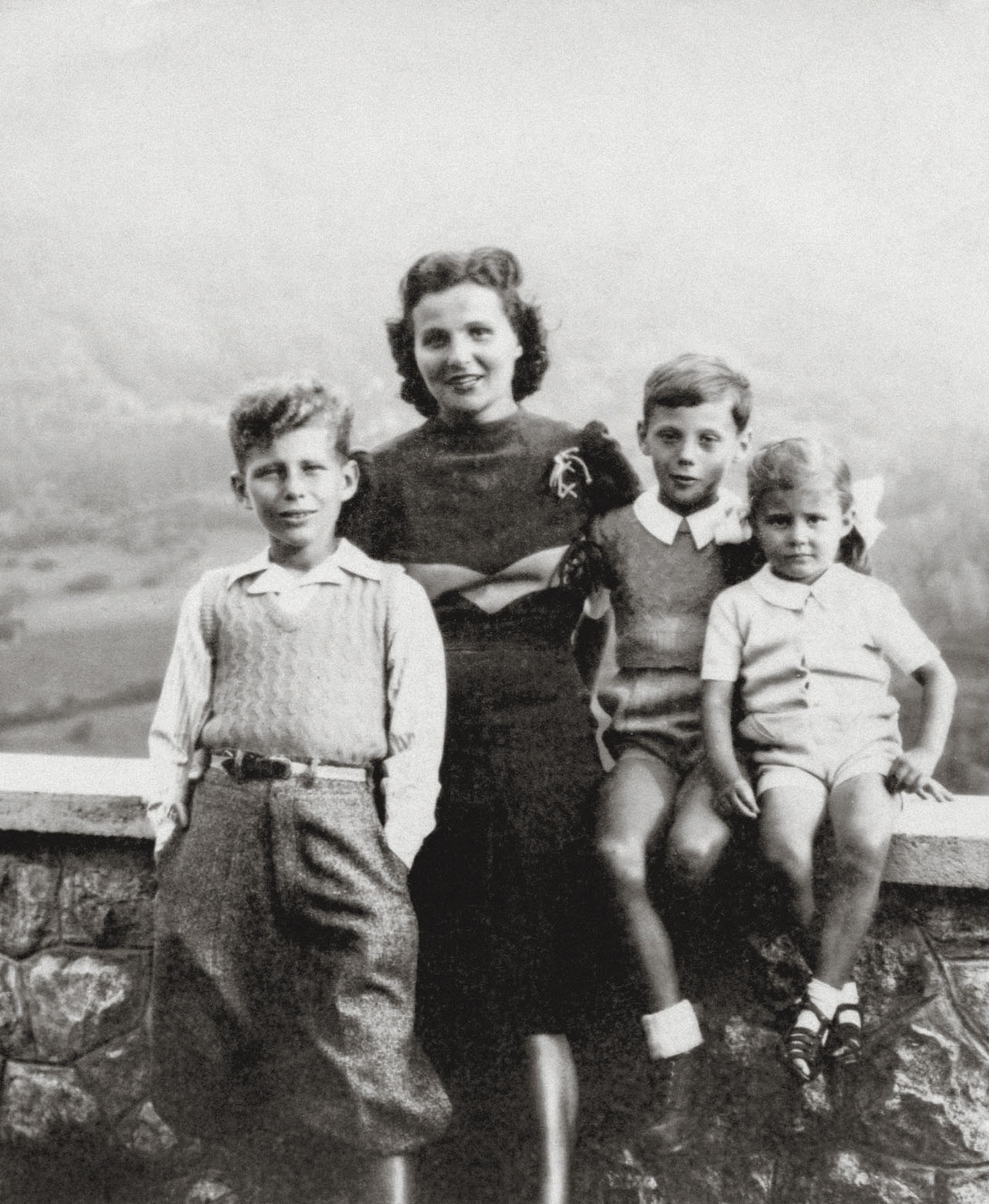
And what did you do to feel better?
We children would play with simple things. I remember the fun of building huts on the banks of the River Trebbia. I was lucky to have two brothers. I never felt alone.
How did you come to the decision to convert your factories to manufacture supplies essential to doctors and nurses, a choice, again, known as “war economy?”
Yes, at this time of deep crisis and economic downturn, which requires extraordinary measures, I think it’s vital for all of us to contribute and do our part. The manufacturing plants were closed, while the need for PPE, personal protection equipment, for the health care workers involved at the forefront is ever increasing. The decision to reconvert the production to make medical overalls seemed a duty to me. Doctors and nurses are giving a vital contribution, risking their health and their lives every day. I wanted to formally thank them for their commitment and selfless dedication to their work with a practical action that would speak louder than words.
The population most affected in the world is the elderly. Why should the elderly always be protected and saved?
Because they are people, and when it comes to saving lives age, sex and origin don’t count.
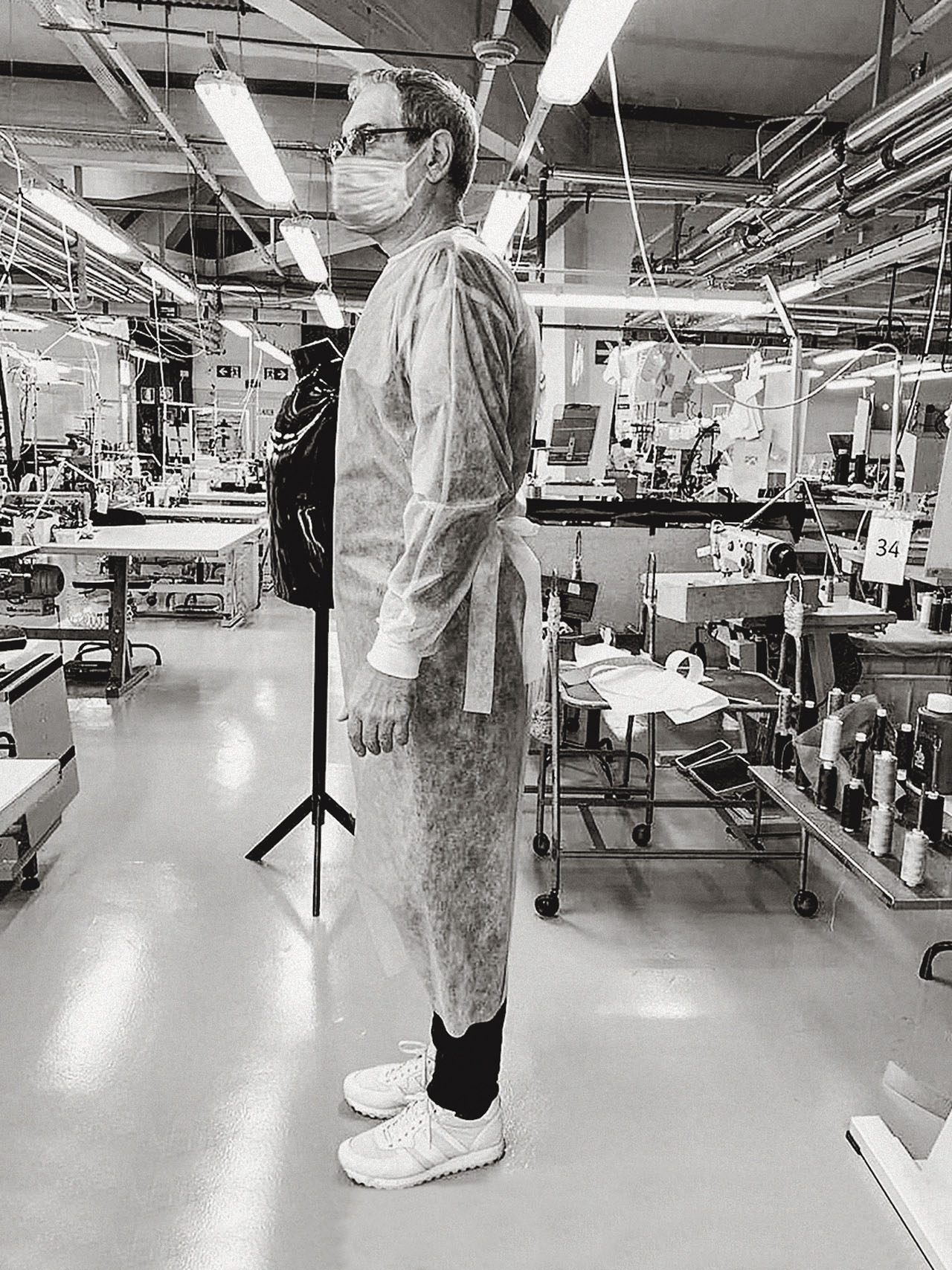
How would you describe the invaluable legacy (i.e. memories, knowledge, wisdom) with which the elderly contribute to our communities? And what could be done to enhance such contributions?
That’s exactly the word I would use to describe it, invaluable. The elderly today are much more active and integrated than they were in the past. Stimulating and leveraging their knowledge would lead to an exchange of values and skills between generations, very important for the development of society.
How are you experiencing quarantine? Aside from working, are you reading or rereading a book or watching good movies? How are you using this somewhat suspended time?
I recreated my routine and I stay informed. I’m busy, in some ways much more than I was before, but in the evening I enjoy watching a movie. Recently I watched The Darkest Hour, starring a superb Gary Oldman as Winston Churchill. I truly enjoyed it. I’m also following the series Babylon Berlin, very well produced. It takes me back to my childhood, as the costumes remind me of the clothes my grandfather wore. I’m rereading Memoirs of Hadrian, by Marguerite Yourcenar, and Agnelli Segreti by Gigi Moncalvo: I love the biographic genre.
What do you miss the most of life pre-lockdown?
I miss the meetings and appointments with my employees, direct face to face interactions, looking people in the eyes. And I miss the background noise of a lively, busy city with all its energy.
How does it affect you to see images of empty streets in Milan and elsewhere?
An alienating effect: the cities appear very beautiful, a sort of suspended beauty because desolately lifeless.
In this period we are all facing the fear of dying and, by contrast, the way each of us expresses our attachment to life. For many, this means having religious thoughts. And for you?
I think that faith is comforting, but it is also a gift of grace possibly for few. For me it means acting, doing something practical. I rarely give up.
As a young man, you wanted to be a doctor. How did this wish come about and why did you then change your mind?
I enrolled in medical studies, thinking of becoming one of those romantic, adventurous country doctors described by Cronin in that extraordinary novel The Citadel, that so moved me when I read it as a boy. Never like today has that wish come back so intense.
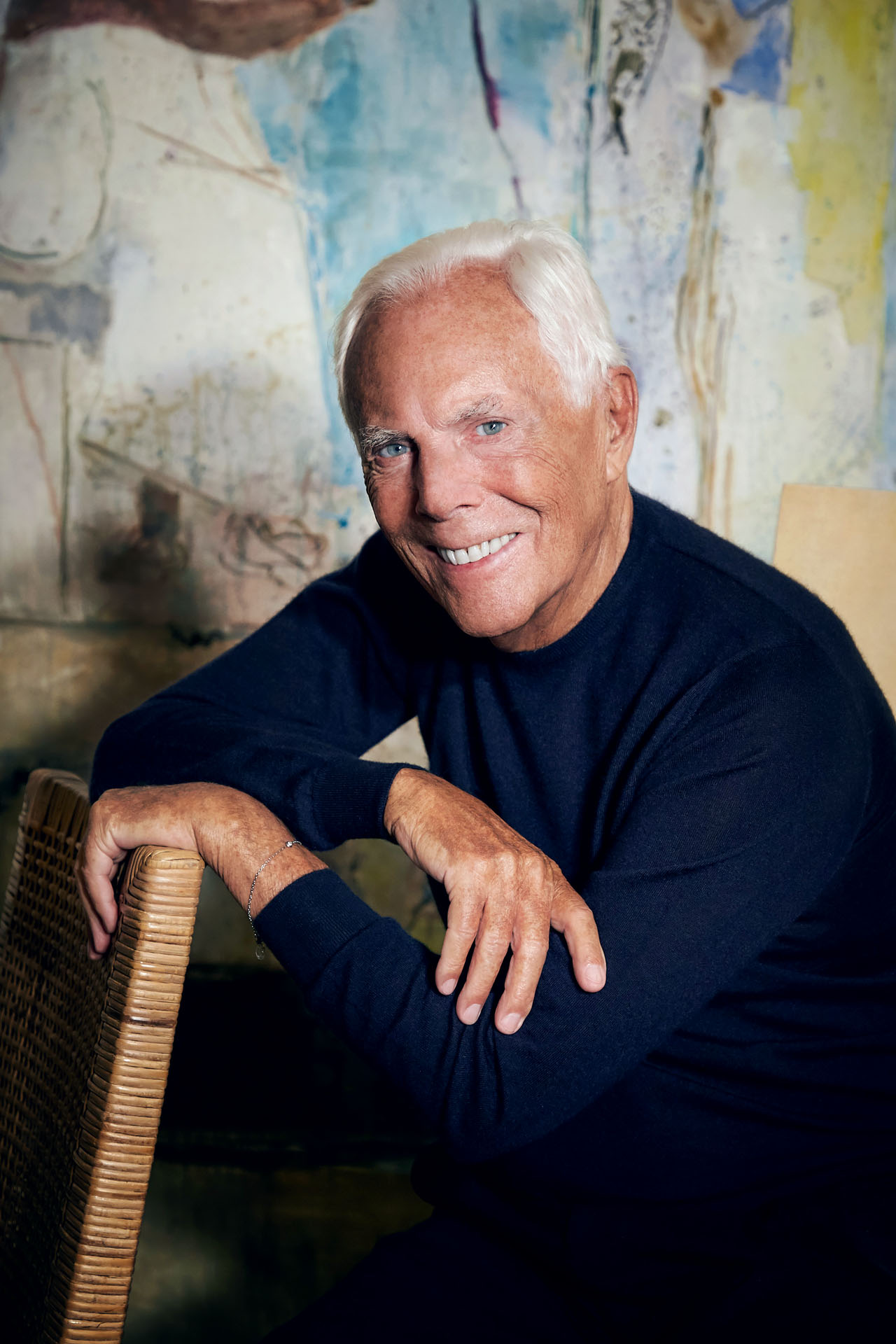
What is the first thing you’ll do when this period is over?
I’ll have a meeting with my collaborators from the Style department and resume working on the collections touching fabrics, trying clothes on the models. I really miss this physical, practical aspect of my work.
Professor Brusaferro of the Italian National Institute of Health said: “After COVID-19, we’ll have to find a new way of doing the things we like. They will have to be done in ways that help us avoid triggering the infection again. It takes creativity to think of a different future.” What do you think of this idea and how do you envision this future?
The pandemic will not disappear any time soon and we’ll have to wait for an effective vaccine to be created. Until then, we are forced to reconsider our way of living and interacting with people. We’ll have to find new solutions to restart the economy, and culture, too. I see the future as a reconstruction effort, but it will require a shared commitment by us all.
In your opinion, will anything change drastically in the world of fashion after this global “shock?”
I do hope so. I’ve been saying this for some time now. We should slow down. I’ve always thought that in the past few years the need to show more and more had become a problem. A false need, driven more by the economy than by real customer demand. This resulted in pre-collection fashion shows, with multiple deliveries that saturates stores with too much merchandise. If this pandemic is teaching us anything, it is to be more careful, avoid waste, do more and better, with less. I will keep this in mind myself, for my own business activities.
Many Italians in this period have played music or sung on their balconies. When all this will be over, which song would you like to sing (or hear), as a sign of joy?
I don’t sing, and it’s better that way! I’d like to hear the music of the fashion show in a full theater or the Italian national anthem at the next Olimpia basketball game.
This interview was originally conducted by Paola Jacobbi for GRAZIA Italy.
